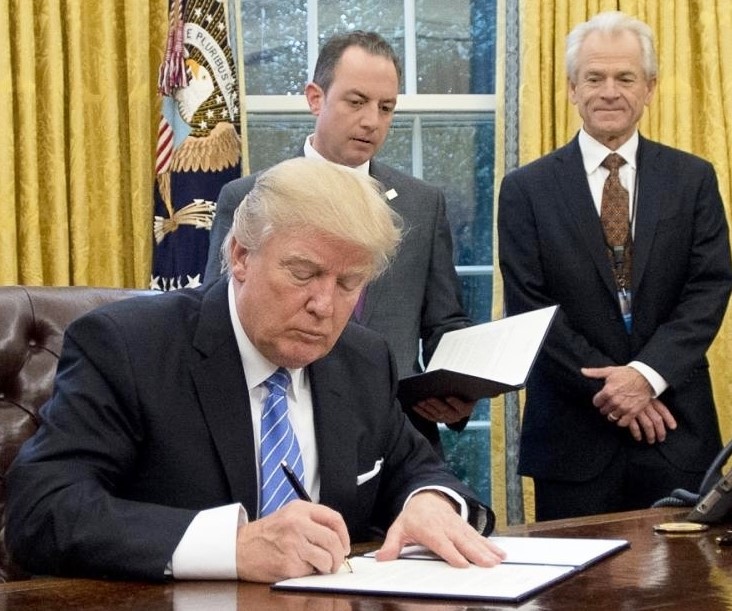


Alejandro Chafuen, Acton’s Managing Director, International, writes today in Forbes about free trade and its relation to the notions of reciprocity and protectionism — popular topics in our current political climate. Chafuen also cites the ideas of famed economists such as Adam Smith and Ludwig von Mises, who of course defended free trade but also allowed for exceptions. Mises even wrote, “Free trade is not the elimination of all tariffs,” maintaining, however, that free trade is always the ideal: “The new Austria must unequivocally espouse free trade both in its foreign and its domestic economic policies.” In our current debates on tariffs and free trade, what might be legitimate exceptions? It’s not an easy question to answer, and care must always be taken that the harm doesn’t outweigh the good.
For me the term “reciprocity” usually carries a positive connotation. Social clubs, for instance, extended reciprocal privileges to members of other partner clubs. Earlier this year, the Concealed Carry Reciprocity Act of 2019 was introduced in Congress, allowing “a qualified individual to carry a concealed handgun into or possess a concealed handgun in another state that allows individuals to carry concealed firearms.” For those of us who cherish the Second Amendment, this reciprocity is a positive.
Several years ago when traveling to Chile, I was directed to a “reciprocity desk.” I thought I was going to be treated to a fast lane, but the opposite was the case—I had to pay a fee. At that time the Chilean government was charging U.S. citizens an entrance fee for a tourist visa. They had a tit-for-tat policy regarding countries where Chileans required a visa. I did not enjoy paying it, but I understood what they meant by reciprocity.
Reciprocity is now making a eback in the economic policy championed by Peter Navarro and other members of the Trump administration. Navarro and his team studied trade relationships with 132 countries. They say the results show that 80% of other countries charge higher tariffs on U.S. imports than what we charge for their products. As a Cato report states, in some other instances the administration has selectively chosen the statistics that better fit its narrative, so in this case it may be better to keep a watchful eye and wait for the details. I am all for efforts to lower and eliminate tariffs. Pushing for reciprocity to achieve that goal might lead to some successes, but, if applied arbitrarily and promoted with a protectionist narrative, it can do more harm than good.
I regard free trade—economic exchanges of goods and services between free consenting adults—as one of the best ways to bring people and cultures together. Fr. Francisco de Vitoria (ca. 1486-1546), the great champion of human rights, regarded free trade as one of those rights. “Nature has established a certain bond between men,” he stated. Fr. Domingo de Soto (1494-1560), another famous moralist, recognized that merce is necessary for the republic. Not all the provinces have the goods they need in abundance.” Both Vitoria and Soto had studied Aristotle, who used reciprocity as the foundation of his views of justice in exchange (Ethics V.5).
In addition to reciprocity, the Trump administration is pushing the principle that economic security equals national security. Champions of a free economy have defended restrictions on trade for the sake of national security. But they have done this as an exception, not as a rule. Take Adam Smith, who did not hide that measures like the Navigation Acts, which gave preference to British ships, had negative effects on merce and on “the growth of that opulence which can arise from it.” Nevertheless he was still in favor of the restrictions: “As defence, however, is of much more importance than opulence, the act of navigation is, perhaps, the wisest of all mercial regulations of England.”
During the 20th century, my favorite economist, Ludwig von Mises, accepted retaliatory tariffs. In his Draft of Guidelines for the Reconstruction of Austria, which a politician could have labeled a plan to “Make Austria Great Again,” Mises wrote: “Free trade is not the elimination of all tariffs. What it does imply is that no attempt will be made to raise domestic prices by imposing import duties, to give domestic producers a chance to sell their wares more advantageously than petitors.”
Von Mises elaborated further and mentioned only two exceptions to free trade: “1) Duties levied on articles for which consumption taxes are imposed (alcoholic beverages, tobacco, and tobacco products); these duties must be set at exactly the same level as domestic taxes for these products. 2) Retaliatory tariffs, which apply to imports of all or modities from countries that adopt a hostile policy toward Austrian exports. Retaliatory tariffs must be imposed at any given time only against a limited number of countries, to maintain Austria’s supply of each of these individual articles at world market prices.” This from one of the most admired defenders of the free economy, a man, who in the same document, stated: “The new Austria must unequivocally espouse free trade both in its foreign and its domestic economic policies.”
Read the entire piece here.
(Homepage photo credit: White House, public domain.)









